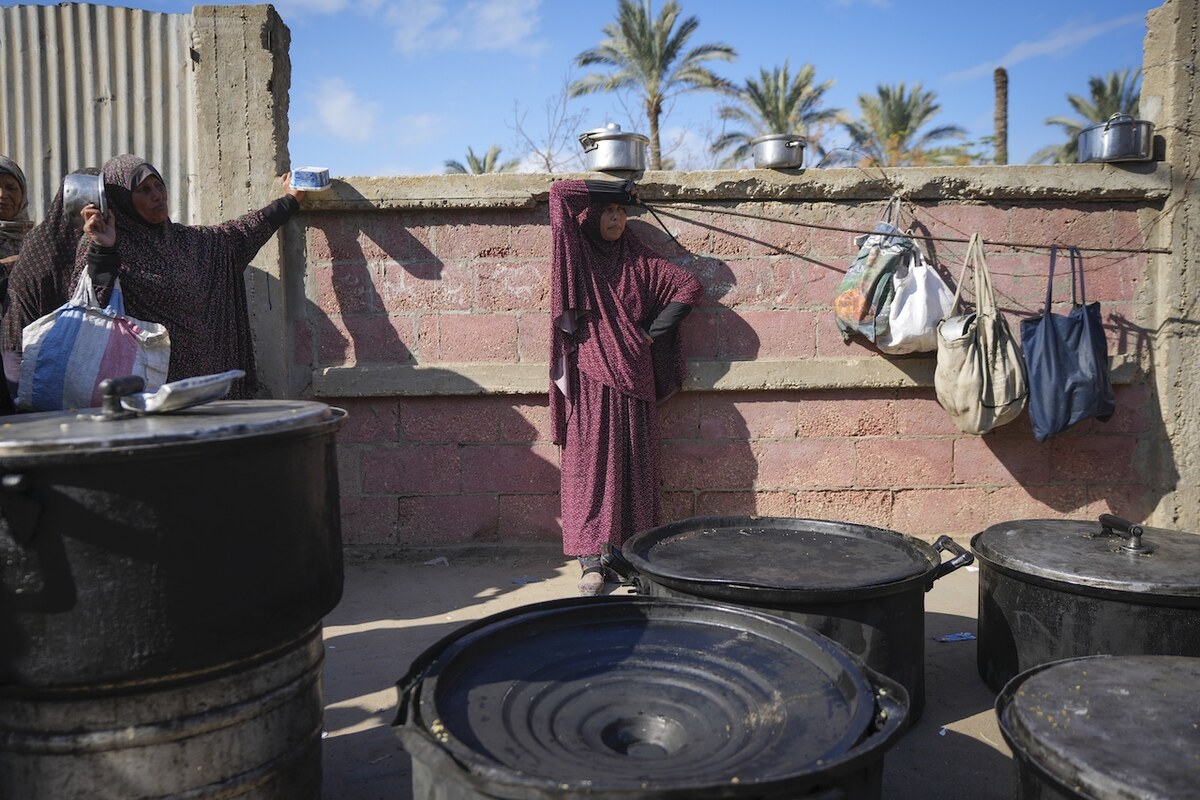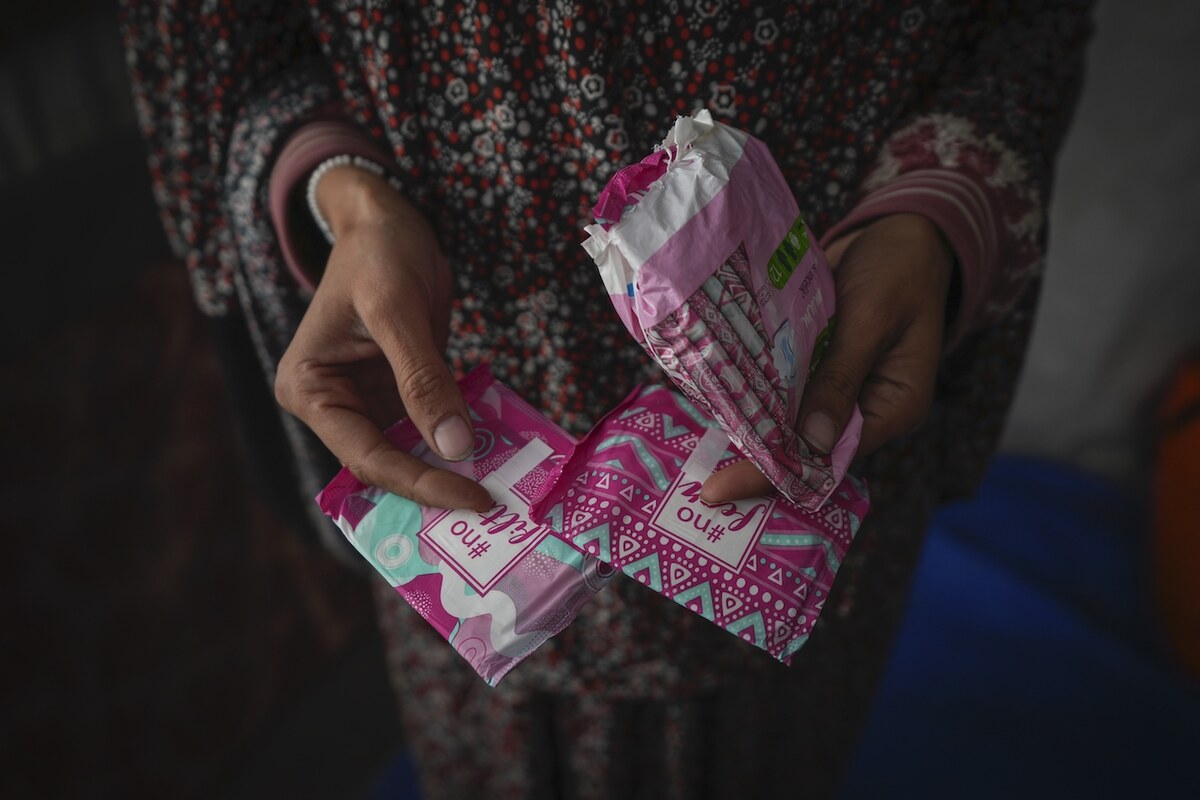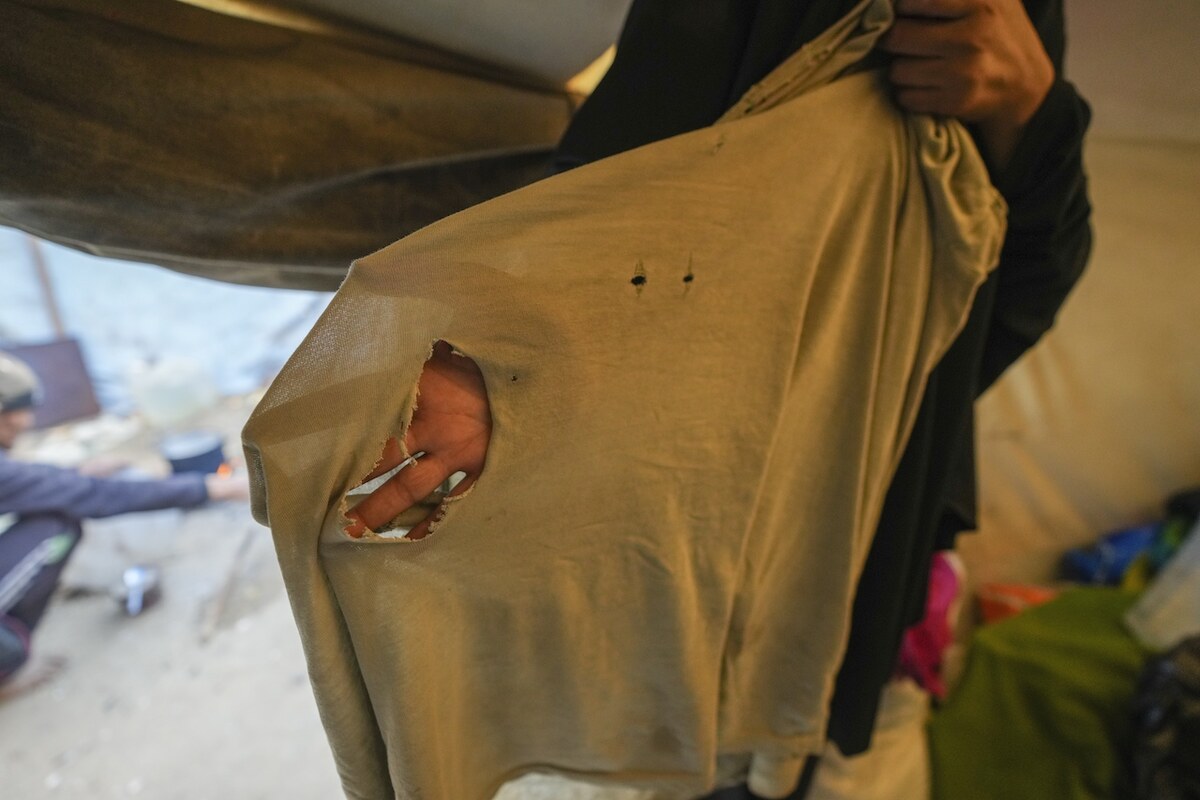BEIRUT: The Lebanese Army Command confirmed on Wednesday that “an Israeli enemy force breached the Blue Line for approximately 400 meters inside Lebanese territory in the areas of Khirbet Yaroun and Bab Al-Adaisseh, and withdrew after a short period.”
The incursion, justified by the aim of eliminating Hezbollah, resulted in three confrontations with the group — along the road to Adaisseh, in the town of Maroun Al-Ras, and on the road to Yaroun.
Videos documented the process of transferring the injured from the site in Adaisseh to Rambam Hospital in Haifa and Ziv Hospital in Safed.
Israeli Army Radio reported that “the rescue operation was extremely complex and took place under difficult conditions and amidst gunfire.”
According to Hezbollah’s account, “an Israeli infantry unit infiltrated the Adaisseh road three days ago, where Hezbollah members merely observed their movements. The Israeli force subsequently retreated, only to attempt another incursion into the same area on Wednesday, mistakenly believing it to be secure.”
The group added: “Unbeknownst to the Israeli soldiers, they had fallen into a well-planned ambush, as Hezbollah operatives opened fire with both machine guns and rockets, resulting in the deaths of four Israeli soldiers and injuries to 20 others.”
Hezbollah said in a press release that its operatives “targeted a large infantry force in the settlement of Misgav Am, opposite the town of Adaisseh, using rocket and artillery fire, resulting in a direct and precise hit.”
The group said that “another clash occurred with a force from the Israeli army that was infiltrating the town of Maroun Al-Ras from the eastern side,” adding that it inflicted “several casualties among the force. The Israeli army acknowledged the death of a division commander, while Israeli media reported that 35 soldiers were injured.”
In an attempt by an Israeli force to encircle the town of Yaroun, Hezbollah reported that its members “detonated an explosive device, resulting in casualties among all members of the force, both dead and injured.”
The Israeli army reported that “commando forces, including fighters from the Egoz unit, successfully located and destroyed a combat center belonging to Hezbollah, which housed a rocket launch platform, a stockpile of explosives, and other combat equipment.”
It said that “to date, more than 150 terrorist infrastructures have been destroyed through airstrikes, including the headquarters of the Hezbollah terrorist organization, weapon depots, and rocket launch sites.”
According to the Israeli army, “additional armored forces joined the units involved in a limited ground operation in Lebanon.”
The Israeli army targeted Lebanese border towns, most largely uninhabited, with airstrikes, as well as towns in northern Bekaa.
An airstrike destroyed a house in the town of Debel in the Bint Jbeil district, resulting in the deaths of three people.
Another strike hit a residence in Alma Al-Shaab, leading to the destruction of a home and injuries to a Syrian family of seven.
Additionally, a military drone attacked a vehicle belonging to the Civil Defense team affiliated with Hezbollah while they were assisting the injured, resulting in the deaths of four paramedics.
An airstrike targeting the town of Borj Qalaouiye resulted in two deaths and one injury.
The Lebanese army was engaged in efforts to clear the road connecting Kawkaba and Marjeyoun, which had been obstructed by Israeli shelling.
During this operation, an Israeli drone launched two missiles at the army, one of which detonated, causing minor injuries to a soldier.
The Israeli army repeated its evacuation request to the residents of the southern suburbs of Beirut on Tuesday night before launching airstrikes.
Residents surrounding the southern suburbs woke to the smell of smoke and the sight of flames rising from the buildings that had been reduced to rubble by the intense airstrikes.
Israeli warnings disseminated through social media gave residents about 20 minutes to evacuate before the targeted site was bombed.
A tour organized by Hezbollah on Wednesday for journalists revealed the extent of the destruction caused by 17 Israeli airstrikes from Tuesday night to Wednesday, spanning an area from Chiyah to Choueifat.
Hezbollah media official Mohammed Afif, who accompanied about 200 journalists, said: “The targeted buildings are inhabited by civilians. The objective of the Israeli attacks is to destroy landmarks in the suburbs and incite supporters of Hezbollah against it.”
The influx of displaced individuals into Beirut from the southern suburbs continued.
Evacuation operations expanded to include neighborhoods adjacent to the southern suburbs due to the damage inflicted on their homes by the force of the explosions caused by the missiles.
During a tour of neighborhoods in Beirut, one could witness a number of people seeking refuge at the entrances of buildings, accompanied by their children and possessing only a few belongings.
Dozens of displaced people took refuge in the unoccupied offices of the Azarieh building. They made use of the storefronts that had sustained damage from the port explosion four years ago.
Hundreds of men fled their homes along the sidewalks up to Bechara Al-Khoury Street. They watched the news on screens in the storefronts, in cafes, and on cell phones.
“I am an electrician and now I am out of work. I learned that my house was hit by an Israeli raid. I lost everything I had in the blink of an eye. I don’t know where this war is taking us next,” said Al-Majed, from Khirbet Silm. He only gave his surname.
“My family and I took refuge in the public school nearby. Men are staying on the streets to give more space to women. My house in the town that I never left before was destroyed. There is no roof to protect me and my family. Was this war really necessary? Why did we do this to ourselves?” Al-Bazzi, another displaced man, said.
Lebanon’s Prime Minister Najib Mikati informed the Cabinet that the number of shelters has increased to 874.
This announcement was made after the Cabinet meeting to address the unprecedented displacement of nearly 1 million refugees which, according to Mikati, is “the largest displacement movement that may have happened” in Lebanon.
The Forum de Beirut exhibition center also opened its doors to displaced people.
“The majority of the people in the streets are non-Lebanese,” said Mikati. “We are cooperating with UNHCR to take care of them in cooperation with the Ministry of Social Affairs. The fact that people are staying in the streets is not acceptable.”
Mikati directed the security forces to protect private properties. These directives were issued after displaced people walked into empty residential buildings and occupied apartments.
“The limited violations that have been committed were addressed,” Mikati said.
Based on its estimations, the Lebanese government needs $427 million to cover the shelter and relief operations for the coming three months.
“We received the immediate approval of international organizations to grant us about $200 million, a sum that must be delivered through the UN via a clear and transparent mechanism,” Mikati said.
Nasser Yassin, head of the government’s emergency committee, said that most schools in Beirut and Mount Lebanon reached maximum capacity, and that “we are trying to direct the displaced people toward the north.”


























